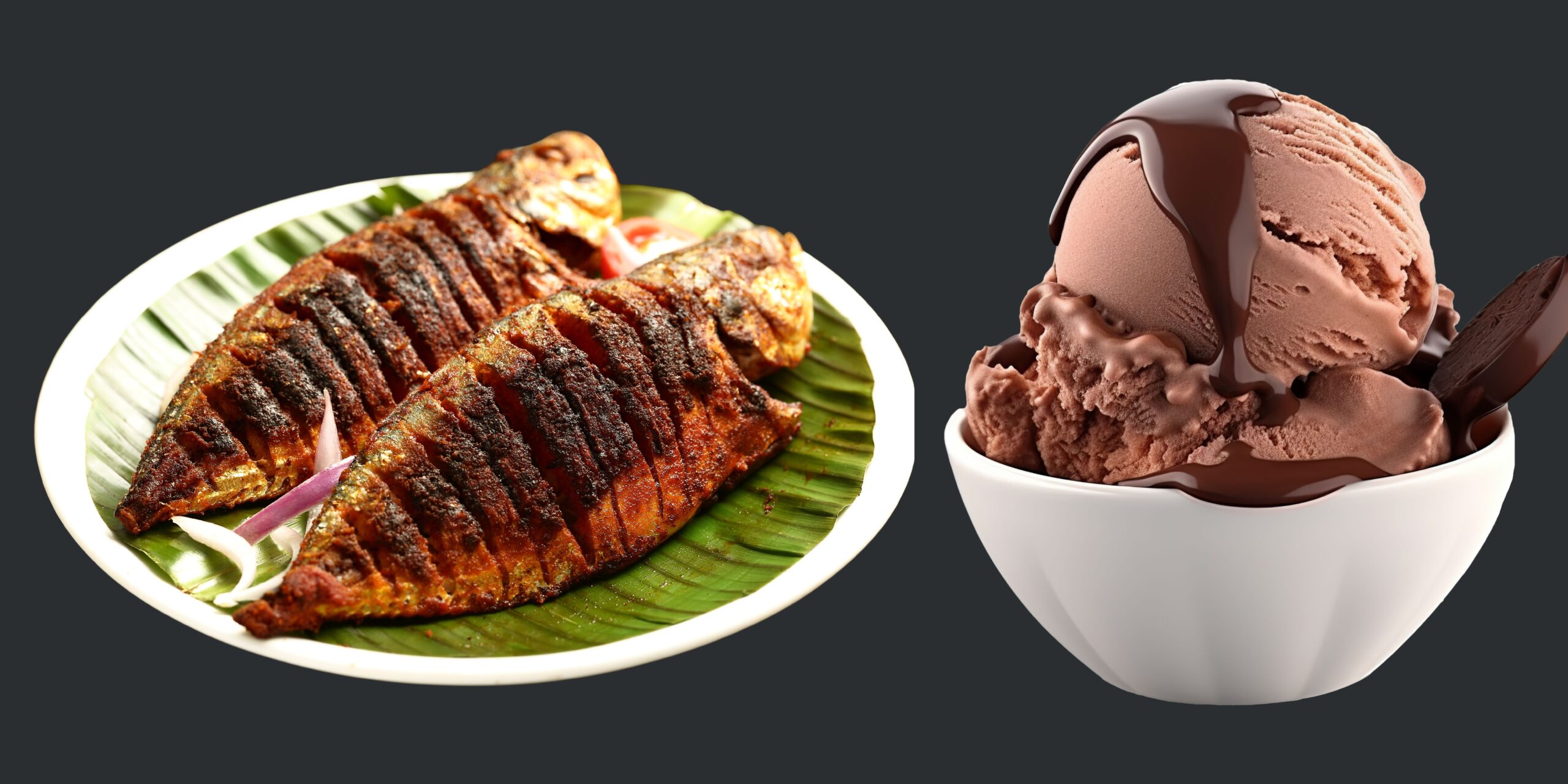Can we eat ice cream after eating fish?
Yes, you can eat ice cream after eating fish. There is no scientific evidence to support the idea that this combination is harmful. While some cultural and traditional beliefs suggest avoiding it, modern food safety practices make it perfectly safe. Let’s explore why this myth persists and the essential food safety practices to follow.
1. Why the Fish and Dairy Myth Exists
Ayurvedic Tradition
Some Ayurvedic principles view specific food combinations as incompatible. Fish is considered heating, while dairy products are cooling, leading to a perceived imbalance.
Cultural Beliefs
Certain cultural beliefs advise against mixing fish and dairy. These ideas, passed down through generations, often stem from traditional practices rather than scientific evidence.
Historical Practices
Historically, both fish and dairy were prone to spoilage. Before modern refrigeration, consuming these together might have increased the risk of food poisoning, leading to cautionary practices.
2. Food Safety Tips
Freshness
Ensure both the fish and ice cream are sourced from reputable suppliers and are fresh.
Proper Cooking
Cook fish thoroughly to eliminate potential bacteria. Proper cooking practices are essential for food safety.
Storage
Refrigerate dairy products, including ice cream, promptly when not in use to prevent spoilage.
Allergies/Intolerances
Be aware of any personal allergies or intolerances to either fish or dairy. Knowing your body’s reactions is crucial for safe consumption.
Conclusion
While traditional beliefs may caution against eating fish and dairy together, modern food safety practices ensure it is perfectly safe. Enjoying ice cream after a fish meal can be a delightful experience as long as you follow proper food safety guidelines.
This article is reviewed by Russel, before publishing. If you have any doubt, you can contact us or consult with your nearby doctor. Remember, in medical matters, there is no same advice, cure, and medicine for all.

